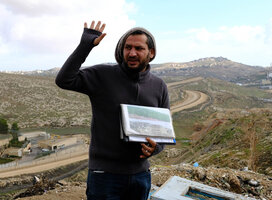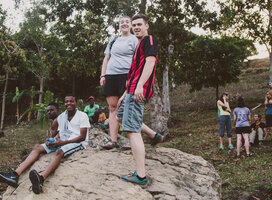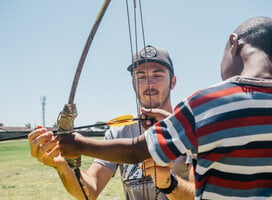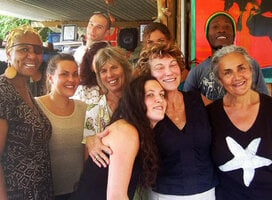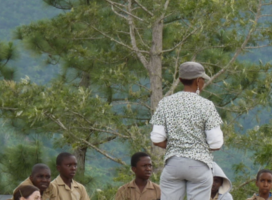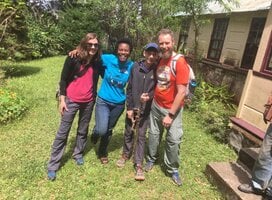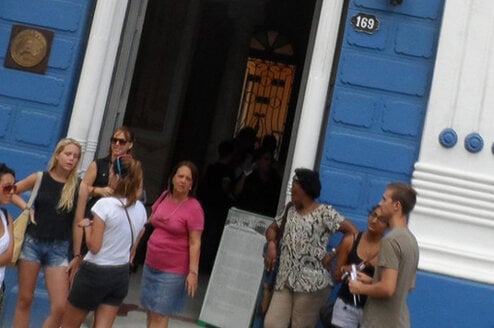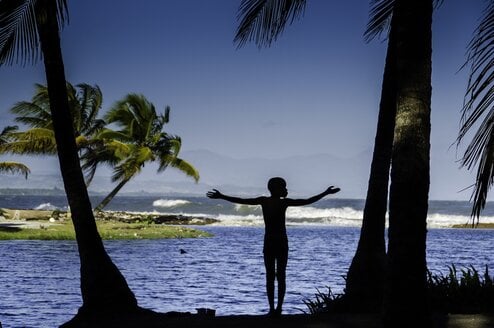Gap Year in Jamaica
Of all the Caribbean Islands, Jamaica has been alluring travelers for decades which should come as no surprise. With a unique, rich history rooted in African and Caribbean traditions, this island is unique and ripe for adventure. There are world-class diving reefs, incredible sunsets, and the Blue Mountains boast the world’s best coffee. From the legendary rum, white sand beaches, lush mountain ranges, and relaxed reggae inspired culture, Jamaica has something for everyone. So what’s stopping you? Read on if you need more convincing and then dive in!
Volunteer
There are a multitude of volunteer programs that will let you do anything from community work to working with kids and even teaching English! Since the national language already is English, teachers focus more on pronunciation, which means you don’t need a TEFL certification. Opportunities to work with children are available across the country in orphanages and schools. The most common projects are those working on developing communities through health campaigns and medical work, construction and village projects to working to eradicate hunger and disease through education and assistance. You can even volunteer with NGOs who are working to improve social conditions, make justice more fair, working with needy children etc. Check out some organizations out Wango.
Backpacking
Jamaica may just be a backpacker’s dream come true. With a mountain range that spans the entire island from east to west, it is the ideal way to see the country. Hike, or rent a taxi for the cheapest way to get around. You’ll find beaches and local villages along the way with deep culture and customs. Explore rainforests and listen to reggae with Jamaican people and really learn to embrace their relaxed way of life. Make sure to climb the Blue Mountains and check out the scuba diving at Runaway Bay and Ocho Rios. Treasure Beach is a popular sandy beach lined with palm trees and don’t forget all the waterfalls you’ll stumble upon! Some of the wetlands are even home to endangered crocodiles and manatees. There is plenty of variety to keep any traveler’s interest and create a distinct experience unlike anywhere else in the world.
Remember that you won’t be living the same way you do at home! Try to embrace local customs, pack light, and above all be flexible. Make sure you are comfortable with the organization you are going through or with your plans before you leave. If you feel out of your comfort zone, recruit a travel buddy or find a program. If you go in with an open mind and heart, the details will work themselves out.
Cost of Living in Jamaica
Though it is a developing country, Jamaica can be surprisingly expensive if you don’t check out all the options ahead of time. Kingston is the most expensive city, but no matter where you are, housing is the biggest expense if you rent independently ($515-$1235 USD monthly). However, university housing or hostel rental can start as low as $200 USD per month. If you go through a volunteer program, see if they can help you find affordable housing in your area. Transportation is the next highest cost, though buses are the cheapest, they are often unreliable so many rely on taxis to get around. It is better for your wallet to shop at local markets than at the supermarket. Make sure that even if a place accepts US currency, you calculate the exchange rate in your head: according to TripAdvisor, using US currency can mean you spend 15% more! Though you may have to adjust your lifestyle a bit, if you do your homework ahead of time, living in Jamaica can be affordable instead of a budget buster.
Culture and Etiquette in Jamaica
Jamaicans are known for their friendly, laid back culture. They are relaxed and casual, but there are still some social norms that it’s good to know about!
Greeting/Meeting
- The most common greeting is a handshake with direct eye contact and a warm smile.
- Once a friendship has been established, women may hug and kiss on each cheek, starting with the right and men often pat each other’s arm or shoulder during the conversation.
- Address people with their title (Mr., Miss, Mrs., etc) and their surname until you are invited to use their first name or, as your friendship deepens, their nickname.
Dining
- Table manners are relatively informal, unless the occasion is formal. When in doubt, watch the locals!
- Do not sit until you are invited to and told where to sit.
- Meals are often served buffet style, but many times it is polite to wait until the host invites you to start eating.
- Try everything and finish.
- Always use utensils.
Health and Safety in Jamaica
Vaccinations If you are coming from an area with a risk of yellow fever, you will need to have had a vaccination and a certificate to enter. Otherwise, recommended vaccines include tetanus, hepatitis A and B, and diphtheria. Though the water is considered safe, most locals and tourists play it safe and only drink bottled water.
Safety Jamaica’s crime statistics may be off-putting to would be travelers, but don’t worry. With some street smarts and common sense, you’ll be ok just like any other city. The violence is not directed at tourists, except for crimes of opportunity, and is in very specific areas. To keep yourself safe, follow these tips as you would anywhere else:
- Don’t carry large amounts of cash or jewelry.
- Don’t wander alone at night, even on some of the beaches and especially parts of Kingston.
- Watch your alcohol intake and take normal travel precautions.
- As long as you don’t check your common sense at the door, you’ll find Jamaica to be a warm, relaxing place full of wonderful, friendly local people.

